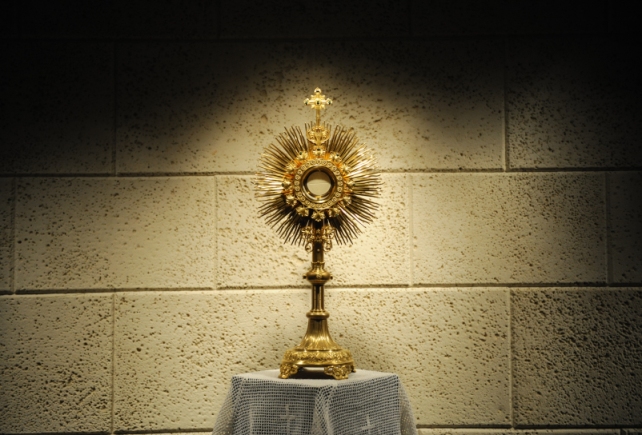This all sounds so familiar…
 Yesterday I published a blog entry which contained the text which we are going to study tonight at the JP2 Group. We’re going to read this document as part of our three-week series looking at worship in the Early Church.
Yesterday I published a blog entry which contained the text which we are going to study tonight at the JP2 Group. We’re going to read this document as part of our three-week series looking at worship in the Early Church.
The text I posted yesterday was a substantial extract from a work by Justin Martyr. St. Justin was a Christian in the 2nd Century and he wrote an apologetic work addressed to the Emperor known as his First Apology. In this ancient document he provides a defense of the Christian faith, but he also describes in some detail the Christian worship of his era.
Justin wrote his First Apology in around AD 150 and, despite the nascent state of the Church at this time, the liturgy has a clear structure. Catholics and all those who attend “liturgical” churches should be able to recognize many things in Justin’s description which are present in their own worship:
1. Sunday Worship
Groups such as the Seventh Day Adventists say that Christians should worship on the Sabbath (Saturday), but it’s clear from St. Justin that in the Second Century Christian worship was on Sunday:
“And on the day called ‘Sunday’, all who live in cities or in the countryside gather… We hold our assembly on Sunday because it is the first day, on which God brought forth the world from darkness and matter. On the same day, Jesus Christ our Saviour rose from the dead”

 Thanks to Jenna for finding this one:
Thanks to Jenna for finding this one: